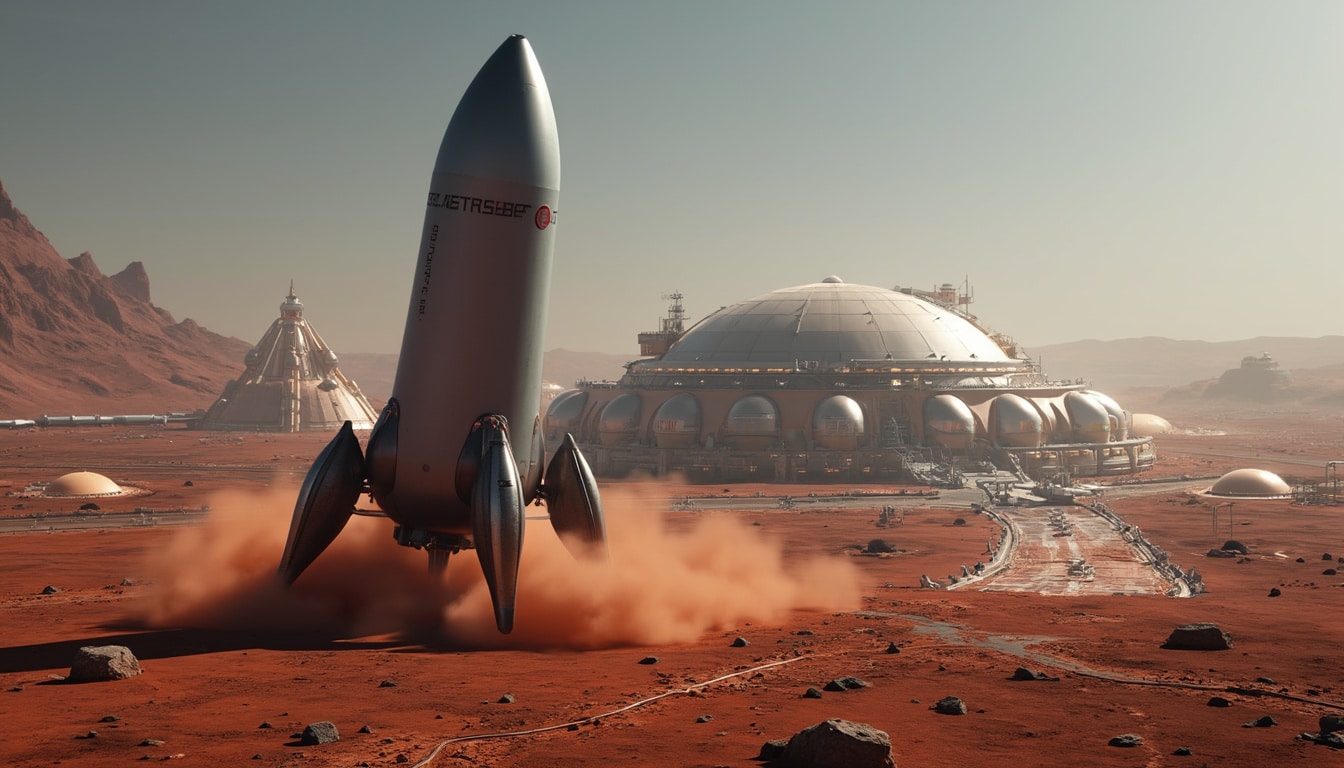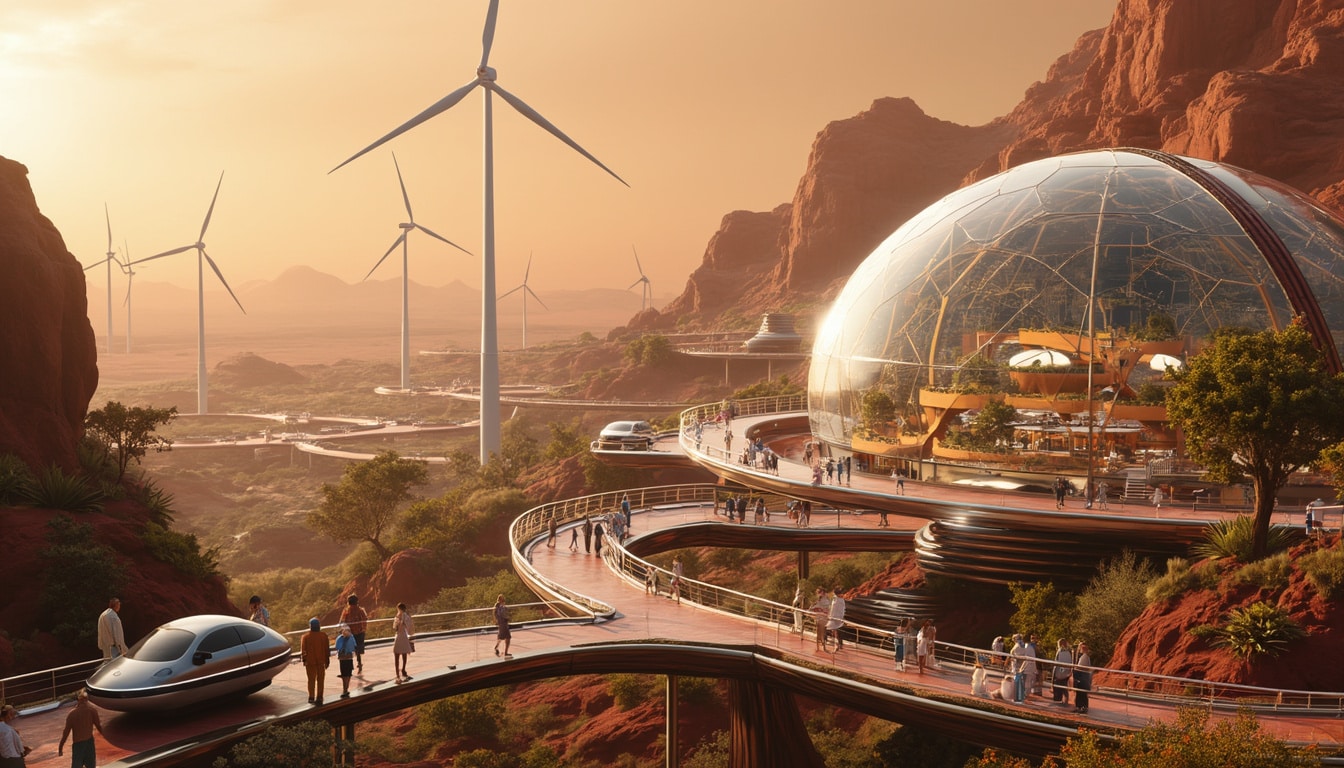Elon Musk’s relentless drive to reshape space exploration is nothing short of extraordinary. As the CEO of SpaceX, he envisions a future where humanity thrives beyond Earth, particularly on Mars. With a mission intricately linked to ventures like Tesla, Neuralink, and The Boring Company, Musk seeks to revolutionize interplanetary travel and colonization. His audacious plans not only challenge NASA’s long-held dominance in space but also promise to unlock a new era of human existence among the stars.
The complexities of Musk’s strategies span technology, finance, and ethical considerations, paving the way for bold ventures into the cosmos. This narrative unfolds across various platforms, reshaping public perception and engagement with space endeavor like never before. From developing reusable rockets to addressing the highest realms of innovation with his companies such as SolarCity and OpenAI, this exploration of Musk’s master plan unveils the intertwined destinies of terrestrial advancements and extraterrestrial existence.
SpaceX’s Role in Mars Colonization
Central to Elon Musk’s vision is SpaceX, the aerospace manufacturer he founded in 2002. Unlike traditional companies, SpaceX’s design philosophy showcases an innovative approach, primarily focusing on reducing the cost of space travel through reusable rockets. Musk’s flagship rocket, the Starship, is engineered for transporting humans to Mars, marking a significant leap in interplanetary capabilities.

The Starship Project
The Starship project serves as the backbone of Musk’s Mars colonization mission. Initially created to transport cargo, this spacecraft is being tailored for human passengers, transforming it into a beacon of hope for future space voyagers. SpaceX envisions Starship making regular trips to Mars, significantly altering our understanding of travel and habitation beyond Earth. With the first uncrewed missions planned as early as 2026, Musk aims to establish a human presence by the following decade.
Building upon the foundational technologies developed through the Falcon rocket series, Musk has innovatively incorporated advanced materials and streamlined engineering processes to make the Starship not just an efficient transport vehicle but also a platform for astrophysical exploration. The plan includes refueling the Starship in orbit, allowing for longer missions without the constraints of limited fuel supplies.
Crowdfunding the Future
Financing such ambitious projects necessitates creative funding avenues. Musk’s approach includes private investments and partnerships, a departure from traditional government-funded space missions. By harnessing the allure of Mars, Musk has catalyzed significant public interest and investment in SpaceX, positioning it as a legitimate rival to NASA. Future missions will likely rely on public interest and investment to maintain momentum.
Even companies like Tesla play a vital role here, as their groundbreaking electric vehicles and energy solutions provide the needed technological support for sustainable planetary exploration. The idea is not just to visit Mars but to make colonization feasible with renewable energy and sustainable practices.
The Ethical Responsibilities of Interplanetary Exploration
As with any significant leap into uncharted territories, ethical considerations must guide Musk’s and humanity’s space endeavors. The challenge lies in creating not just a human colony on Mars, but one that is responsible, sustainable, and reflective of our best values.

Impact on Mars’ Environment
Terraforming Mars, making it habitable, is a central aim of Musk’s vision. However, ethical discussions arise regarding the impact of human activities on the Red Planet’s environment. Understanding the current state of Mars, from its geology to its potential for supporting life, is essential. Goals include a careful consideration of how societies can thrive without harming the natural state.
Musk’s plans could lead to significant advances in technology that might prevent the exploitation typically associated with colonialism. For instance, developing sustainable resource extraction techniques could avoid damaging the already delicate ecosystems of Mars. Addressing formerly unimagined ethical concerns during the planning stages remains vital.
Community Building in Space
Musk’s projected Mars society should exemplify a new way of living, combining advanced technology with a commitment to sustainability and inclusivity. Diverse opinions on governance and community structures must be resolved to ensure that settlements are peaceful and equitable. Remarkably, experiments conducted in bio-regenerative systems on Earth serve as blueprints for future Martian habitats. They help anticipate needs that rely on radical cooperation and collaboration among colonists.
Establishing laws, social norms, and community guidelines will be equally crucial in setting Mars apart as a thriving human settlement. These structures can discourage harmful practices that have sometimes marred social development on Earth, leading to a more harmonious way of living as pioneers in a new world.
The Technological Innovations Driving Space Exploration
Technological advancements form the bedrock of Elon Musk’s strategy to enable life on Mars. Each of his enterprises, including Neuralink and Starlink, interconnects and supports space-focused aspirations. For instance, Starlink aims to provide high-speed internet to future Mars inhabitants, ensuring they stay connected with Earth and each other.
Interconnectivity and Communication
The establishment of a reliable communication network via Starlink forms a crucial component for successful colonization. Living on another planet presents unique hurdles, such as delays in communication with Earth. Therefore, an autonomous network will be necessary for its inhabitants. By mastering this technology, Martian settlers can foster a sense of community, share immediate concerns, and collaborate on scientific endeavors.
The advancements in artificial intelligence through projects like OpenAI will also play a vital role. Relying on AI-driven solutions can streamline processes, enabling robots and autonomous systems to facilitate daily tasks, counteracting the challenges of limited human resources. This progress mirrors the transformative potential of technologies employed in Musk’s other businesses, such as Tesla’s AI-driven self-driving capabilities.
Transportation Innovations
Beyond the Starship, Musk’s vision includes the development of the Hyperloop, a transportation system that may one day facilitate faster travel between colonies on Mars. This cutting-edge system could reshape intra-planetary travel, enhancing the mobility of settlers and ensuring quick access to various Martian resources and landscapes.
The ambition extends to other ventures, like The Boring Company, with its technology ensuring efficient transportation on the Martian surface. By diligently tackling these mobility challenges, Musk spurs public fascination and investment in both terrestrial and extraterrestrial innovation.
Public Engagement and Global Support for Mars Exploration
Another pillar of Musk’s ambition is garnering public enthusiasm and regulatory support for space exploration. By engaging with audiences and stakeholders worldwide, he strives to build a coalition that supports not only the immediate goals of SpaceX but also the long-term vision of humanity on Mars.
Fostering Global Interest
Musk’s social media presence, particularly on platforms like Twitter, enables him to connect directly with fans and critics alike. He uses these platforms to share insights, realities, and aspirations surrounding space travel, thus fueling public interest and support for his ambitious missions.
Additionally, partnerships with educational institutions and scientific communities emphasize collaboration and mutual growth. Inviting scientists to contribute to the exploration fosters diversity in ideas while promoting awareness about the significance of interplanetary travel.
Government and Regulatory Collaboration
Musk’s dual role as a private entrepreneur and his influence over public enthusiasm encourages government initiatives to embrace partnerships with private companies. NASA and SpaceX’s collaborative projects revolutionize space exploration, demonstrating that public-private partnerships can realize ambitions previously thought impossible.
SpaceX’s involvement in NASA missions is an excellent testament to Musk’s ability to adapt and unify varied interests towards a common goal. By aligning corporate interests with public needs, he nurtures a vibrant atmosphere of innovation and growth. Ultimately, the next decade could witness not just the first humans on Mars, but the establishment of a self-sustaining colony that invigorates exploration, science, and interstellar possibilities.
| Company | Focus Area | Key Contribution to Space Exploration |
|---|---|---|
| SpaceX | Aerospace | Reusable rockets, Mars colonization |
| Tesla | Transport/Energy | Electric vehicles, sustainable technologies |
| Neuralink | Health Tech | Enhancing human capabilities for space living |
| The Boring Company | Infrastructure | Efficient transportation systems |
| SolarCity | Energy | Renewable energy solutions for Mars |
| OpenAI | Artificial Intelligence | Autonomous solutions for space |
| Starlink | Communications | Global internet coverage, connectivity for Mars |




Leave a Reply